Burnout can happen in any profession. The healthcare industry has experienced some especially difficult challenges, particularly in the past two years, that have affected individuals in adverse ways. There are many causes of stress in nursing, as well as somewhat startling healthcare burnout statistics.
What Causes Stress and Burnout?
Burnout is a specific type of exhaustion that is caused by a number of factors, including lack of sleep, unrealistic expectations, and other work-related stressors. Anyone can be burned out if they work too hard or face too much pressure in their job. However, nurses and other healthcare professionals generally face a greater risk of burnout given the nature of their work.
In healthcare, there is a growing demand for nurses, which puts more pressure on those who are currently working in the field. Healthcare providers are seeing an increase in the prevalence of chronic disease, so more healthcare workers will continue to be needed, especially as the Baby Boomer generation ages. The demand for nurses is projected to increase significantly, growing by 12% from 2018 to 2028. With unfilled positions in the healthcare setting, nurses are experiencing overwork and burnout.
Risks of Stress in Nursing
When nurses work long hours, potentially even having to work double shifts because of the staffing shortage, they are not able to get the sleep they need to function properly in their job. One survey found that a fourth of nurses reported that they were not able to get the sleep they needed between shifts.
Lack of sleep and the stress of the job has substantial risks for those in healthcare as well as their patients. Nurses are at risk of developing mental health conditions, including depressive disorders. The quality of their work will also suffer, which can endanger their patients as the quality of their care decreases. The nurse’s stress and burnout can impact their reputation as well as their own health.
Healthcare Statistics
A survey of over one thousand healthcare workers conducted from June to September in 2020 found that they are overly stressed, especially during the COVID-19 pandemic, and are stretched too thin to be able to take care of themselves and their patients in a healthy and safe manner. The survey found that:
- 93% experienced stress
- 86% experienced anxiety
- 77% were frustrated
- 76% were exhausted and burned out
- 75% were overwhelmed
Asked about the changes that healthcare workers had been feeling over the previous three months, 82% of the survey participants cited emotional exhaustion. Other responses included:
- Trouble with sleep (70%)
- Physical exhaustion (68%)
- Work-related dread (63%)
- Changes in appetite (57%)
- Physical symptoms such as headache or stomachache (56%)
- Questioning their career path (55%)
- Compassion fatigue (52%)
- Heightened awareness or attention to being exposed (52%)
In the survey, nurses reported having a higher exposure to the coronavirus (41%) and that they were more likely to feel too tired (67%) than other healthcare workers (63%).
Top Causes of Stress in Nursing
Over a third of the healthcare workers participating in the survey said they didn’t feel as though they had adequate emotional support. The number was much higher for nurses, as 45% said they were less likely to have the emotional support they needed in their job.
The top three work-related stressors were identified as:
- Uncertainty about when things will settle down or return to “normal” – 61%
- Experiencing burnout – 54%
- Heavy or increased workload in the previous three months – 49%
A separate survey found that the top five stressors were:
- Fear of contracting the coronavirus
- Long hours and shifts
- The general state of the world at the time
- Fear of spreading COVID-19
- Family issues and responsibilities
Of the healthcare workers participating in this survey, almost half said they were considering quitting the jobs, retiring, or changing careers. In addition, about half of the respondents said their mental health had deteriorated.
Reduce Nurse Burnout in Your Practice
At IntellaTriage, we can help you reduce nurse burnout and staff turnover as well as improve patient satisfaction in your practice. We offer the nurse triage solutions you need, tailored to your practice and your patients. Our triage nurses provide your patients with the highest quality of care, day or night. We also capture all referrals quickly, increasing your topline revenue and your patient’s healthcare outcomes.
To learn more about IntellaTriage’s revolutionary approach to nurse triage service, contact us today.
Contact Us for a Consultation
Ready to optimize your triage process? Reach out to us today for a consultation tailored to your needs. Let’s elevate your patient care together.
More From The Blog
Patient needs don’t end with the workday and care shouldn’t either. But sustaining continuous care across all hours is far from simple. The real challenge for home-based care organizations is not in recognizing this truth, but rather in designing systems that can support continuous, clinically sound care across all hours and the full episode of [...]
Post-acute care has been shaped these past years by by workforce shortages, evolving regulatory and payment models, and growing expectations around patient experience. Provider organizations now face a critical inflection point. The decisions leaders make in the next 12 months will materially affect quality care, organizational growth, staff experience, and financial stability for years to [...]
Post-acute triage call volumes continue to rise across hospice and home health, driven by higher census, caregiver anxiety, increased acuity at home, and symptom flare-ups. Field nurses are stretched thin, documentation requirements increase regularly, and families expect and deserve immediate clinical guidance, not voicemail. The confluence of these factors mean agencies are paying closer attention [...]









